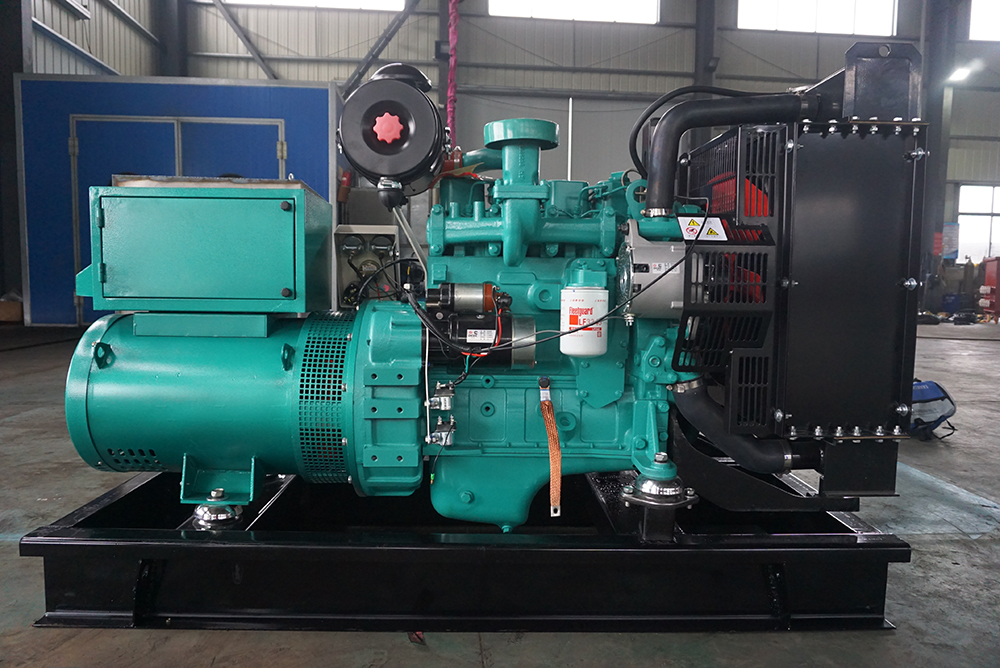Introduction
Diesel generators play a crucial role in providing backup power during outages and ensuring continuous operations in various industries. These generators are relied upon for their ability to efficiently produce electrical power, making them an essential component of many facilities. To ensure the reliable operation of diesel generators, it is essential to implement condition monitoring practices that allow for early detection of potential issues and proactive maintenance. This article explores the importance of condition monitoring for diesel generators, the methods and technologies used for monitoring, and the benefits of implementing a comprehensive condition monitoring program.
Importance of Condition Monitoring for Diesel Generators
Condition monitoring is the process of monitoring the health and performance of equipment to detect any abnormalities or signs of potential failure. In the case of diesel generators, condition monitoring is crucial for several reasons:
1. Early Detection of Issues: By continuously monitoring the key components of a diesel generator, such as the engine, alternator, cooling system, and fuel system, operators can detect early signs of wear, corrosion, or malfunction. This early detection allows for timely maintenance and repairs, reducing the risk of unexpected breakdowns and downtime.
2. Preventive Maintenance: Condition monitoring enables operators to implement a proactive maintenance strategy rather than a reactive one. By identifying and addressing potential issues before they escalate, maintenance can be scheduled at convenient times, avoiding costly emergency repairs and unplanned outages.
3. Optimizing Performance: Monitoring the performance of a diesel generator allows operators to identify opportunities for optimization. By analyzing data on fuel consumption, efficiency, and load distribution, adjustments can be made to improve the overall performance and efficiency of the generator.
4. Extending Equipment Life: Regular monitoring and maintenance help extend the lifespan of diesel generators by preventing premature wear and damage. By addressing issues promptly and conducting regular inspections, operators can ensure that the generator operates at its peak performance for an extended period.
Methods and Technologies for Diesel Generator Condition Monitoring
There are various methods and technologies available for condition monitoring of diesel generators, each offering unique benefits and insights into the health of the equipment. Some of the commonly used methods and technologies include:
1. Vibration Analysis: Vibration analysis is a widely used method for monitoring the health of rotating machinery, including diesel generators. By analyzing the vibration signatures of key components such as bearings, shafts, and rotors, operators can detect abnormalities that indicate potential issues such as misalignment, imbalance, or wear.
2. Oil Analysis: Oil analysis involves testing the oil in the engine of a diesel generator to assess the condition of internal components. By analyzing the levels of contaminants, wear particles, and additives in the oil, operators can identify signs of component wear, lubrication issues, or contamination that could lead to equipment failure.
3. Thermography: Thermography uses infrared imaging to detect hot spots and temperature variations in the components of a diesel generator. By identifying areas of overheating or abnormal temperature patterns, operators can pinpoint potential issues such as loose connections, faulty insulation, or component failure.
4. Performance Monitoring: Performance monitoring involves tracking key operational parameters such as fuel consumption, power output, and efficiency of the diesel generator. By comparing these parameters against established benchmarks or historical data, operators can identify deviations that may indicate performance issues or inefficiencies.
5. Remote Monitoring: Remote monitoring systems enable operators to monitor the condition and performance of diesel generators from a centralized location. These systems use sensors, data acquisition devices, and communication technologies to collect real-time data on various parameters and provide alerts or notifications in case of abnormalities.
Benefits of Implementing a Comprehensive Condition Monitoring Program
Implementing a comprehensive condition monitoring program for diesel generators offers a wide range of benefits to operators and facility managers. Some of the key benefits include:
1. Increased Reliability: By proactively monitoring the health and performance of diesel generators, operators can improve the reliability of the equipment and reduce the risk of unexpected failures or outages. Early detection of issues allows for timely repairs and maintenance, ensuring continuous operation.
2. Cost Savings: Condition monitoring helps reduce maintenance costs by enabling operators to schedule maintenance activities based on actual equipment condition rather than arbitrary schedules. This proactive approach minimizes downtime, avoids costly emergency repairs, and extends the lifespan of the equipment.
3. Improved Safety: Monitoring the condition of diesel generators helps identify potential safety hazards such as overheating, excessive vibration, or fuel leaks. By addressing 150KW Diesel Generator For Sale , operators can create a safer working environment for personnel and prevent accidents or injuries.
4. Enhanced Performance: By analyzing data on the performance of diesel generators, operators can identify opportunities for optimization and efficiency improvements. Adjustments to load distribution, fuel consumption, or maintenance schedules can help maximize the performance and output of the equipment.
5. Compliance with Regulations: Many industries have regulations and standards that require regular inspections and maintenance of backup power systems such as diesel generators. Implementing a condition monitoring program helps ensure compliance with these regulations and demonstrates a commitment to safety and reliability.

Conclusion
Condition monitoring is a critical aspect of maintaining the reliability, performance, and safety of diesel generators in various applications. By implementing a comprehensive condition monitoring program that includes methods such as vibration analysis, oil analysis, thermography, and performance monitoring, operators can proactively monitor the health of their generators and take timely actions to prevent failures and optimize performance. The benefits of condition monitoring include increased reliability, cost savings, improved safety, enhanced performance, and compliance with regulations. By investing in condition monitoring technologies and practices, operators can ensure the long-term reliability and efficiency of their diesel generators, ultimately leading to improved operational continuity and reduced downtime.
